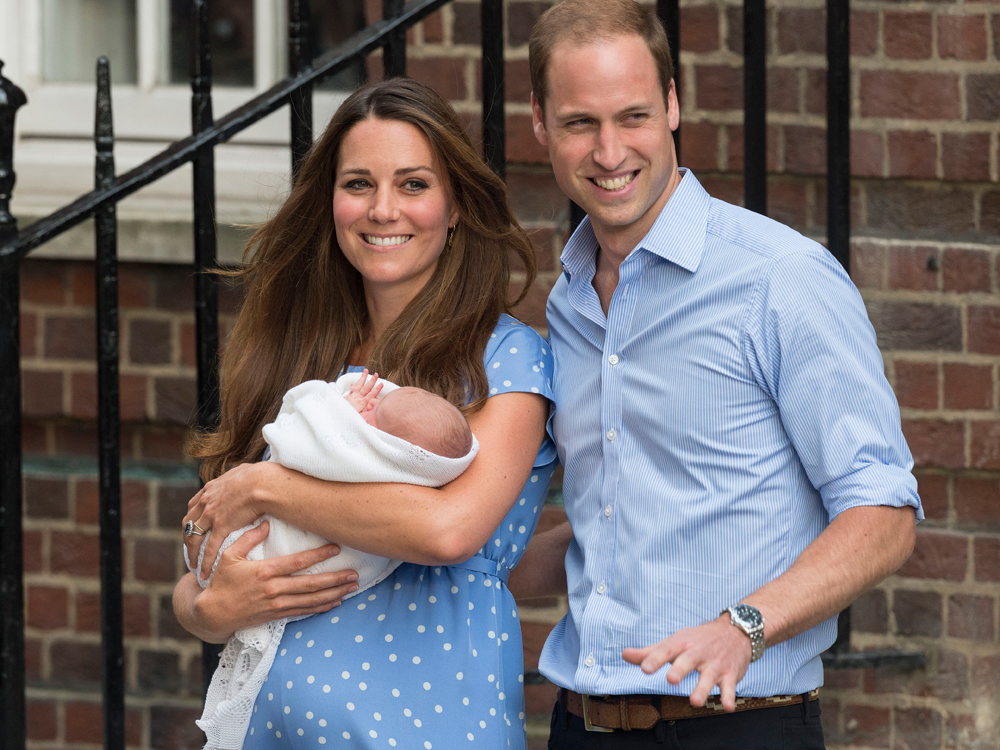Extreme Morning Sickness Like Kate Middleton's Causes 1,000 Abortions A Year
A shocking study reveals 10,000 women suffer with hyperemesis gravidarum, like the Duchess of Cambridge, and half of them receive no help at all

A shocking study reveals 10,000 women suffer with hyperemesis gravidarum, like the Duchess of Cambridge, and half of them receive no help at all
It's a pregnancy affliction that Kate Middleton has suffered with during two pregnancies, and as the Duchess of Cambridge prepares to give birth to her second child this month, her well publicised experience with extreme morning sickness is now raising awareness around the condition.
It's also dotting question marks when it comes to treatment and support for fellow expectant mothers who share Kate's pregnancy complication.
This week a shocking report has revealed that Kate Middleton is not alone: 10,000 women suffer from hyperemesis gravidarum every year. Not only that, it claims 5,000 women are failing to receive any help and up to 1,000 are resorting to getting an abortion as a result.
In a shared report entitled 'I could not survive another day', the British Pregnancy Advisory Service and Pregnancy Sickness Support revealed that 10% of sufferers - that's 1,000 women - actually terminate their pregnancy as a result of HG.
But what exactly is hyperemesis gravidarum? HG is a rare condition that causes severe dehydration leading to weight loss and a build-up of toxins in the blood or urine, called ketosis. It is believed to be caused by elevated levels of the ‘pregnancy hormone’ HCG and is common in the first 12 weeks of pregnancy due to a conception surge.
As many will remember, Kate was forced to pull out of several Royal engagements last year during her first trimester, mirroring her first pregnancy with Prince George.
Marie Claire Newsletter
Celebrity news, beauty, fashion advice, and fascinating features, delivered straight to your inbox!
But whilst Kate was admitted to hospital and treated quickly and efficiently with intravenous fluids, spotlighting the condition in recent years, this new report has revealed many other women still do not receive the proper attention for their condition.
The report states: 'While the experience of the Duchess of Cambridge has dramatically raised awareness of HG, the coverage inevitably did not reflect that many sufferers unfortunately struggle to obtain comparable treatment.'
But it gets far more shocking than that, as the report continues: 'Our research suggests that a significant proportion of women who have ended wanted HG pregnancies were not offered the full range of treatment options, but expected either to put up with the sickness or undergo an abortion.'
Calling for more awareness around the impact and difficulties faced by women who suffer from HG in pregnancy, the report concluded:
'No woman should ever be judged, feel ashamed or a failure for deciding that abortion is the best course of action for her, or pressured into accepting medication when she believes ending the pregnancy is what she needs to do.
'But women with pregnancies they wish to keep deserve prompt access to treatments that may enable them to do just that.'
Let's hope that Kate Middleton's personal experience helps to push things forward and raise awareness when it comes to a pregnancy condition that is, in fact, more common then any of us realised.
Have you ever suffered from hyperemesis gravidarum like Kate? We'd love to hear from you.
The leading destination for fashion, beauty, shopping and finger-on-the-pulse views on the latest issues. Marie Claire's travel content helps you delight in discovering new destinations around the globe, offering a unique – and sometimes unchartered – travel experience. From new hotel openings to the destinations tipped to take over our travel calendars, this iconic name has it covered.
-
 I get lash lifts regularly—here’s how I combat 'lash dehydration’, as per expert advice
I get lash lifts regularly—here’s how I combat 'lash dehydration’, as per expert adviceHow I've got my flutter back on track...
By Rebecca Fearn
-
 I tried Charlotte Tilbury’s bridal make-up service for my wedding, and *loved* it—here’s everything you need to know
I tried Charlotte Tilbury’s bridal make-up service for my wedding, and *loved* it—here’s everything you need to knowOne of my favourite beauty experiences to date
By Tori Crowther
-
 Prince Harry's "proud" words about wife Meghan Markle are going viral
Prince Harry's "proud" words about wife Meghan Markle are going viralBy Jenny Proudfoot